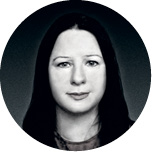The TopUniversities.com guide to the latest university news from around the world, on 5 September 2013.
Austria: Researchers suggest black soot ended the ‘Little Ice Age’
A new study suggests black soot may have been responsible for the retreat of glaciers in the Alps from 1865, reports Wired. At this time, glaciers retreated despite no significant change in temperature, rain or snowfall. However, there was an increase in the amount of black carbon, which absorbs sunlight and heat, in the ice cores. This has led researchers to theorize that the Industrial Revolution may have caused this early retreat of the glaciers, which marked the beginning of the end of the 'Little Ice Age'. Study co-author George Kaser of the University of Innsbruck in Austria said: "All of the glaciers in the Alps started to lose considerable mass."
Israel: Researchers adapt zoological methods to identify mental disorders
Researchers at Tel Aviv University in Israel are adapting a methodology used to study rats so they can identify similarities and differences between patients with mental disorders, reports News Medical. Professor David Eilam and his colleagues recorded patients with obsessive compulsive disorder (OCD) and schizo-OCD, which combines symptoms of both schizophrenia and OCD, and analyzed their movements using this method. They concluded that schizo-OCD is a combination of the two disorders as opposed to a variation of one of them, providing an answer a longstanding question about the disorder.
UK: Artificial intelligence competition at University of Ulster
Northern Ireland's University of Ulster will be hosting an international artificial intelligence competition next week, reports the Londonderry Sentinel. The Loebner Prize for artificial intelligence, named after the sponsor Dr Hugh Loebner, is based on mathematician Alan Turing’s postulation: “If a computer could think, how could we tell?” The resultant Turing Test seeks to identify 'human' skills such as language production, and next week’s competition will be an extreme version of this, testing for the most life-like robot.
UK: Potential £5k incentive for maths and physics graduates
The UK's education secretary, Michael Gove, is considering an extra £5,000 (US$7,800) incentive to attract maths and physics graduates into teaching, reports The Guardian. This is on top of recent offers of scholarships worth £20,000 (US$31,000), and bursaries of up to £20,000. The extra money will go towards training bursaries, and is part of a response to a rise in pupil numbers and a shortage of qualified specialists in key subjects.
